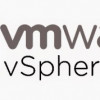As a network engineer, Expect script is handy on linux environment. Since working on Windows environment with limited power to install 3rd party software. Microsoft PowerShell is one of best option for alternative. I have tried Activestate perl with Expect module and plink.exec with "-m" option to use commands. However, partially worked or constantly met limitation and comparibility issue. Ended up, decided to find something always works. Here is what I found.
PowerShell : How to use SSH.NET Library on Windows 7
1. Download
Download SSH.NET Library from below Link.
http://www.powershelladmin.com/wiki/SSH_from_PowerShell_using_the_SSH.NET_library
"Download Script Module and DLL file: SSH-SessionsPSv3.zip"
1-1. Unzip it
1-2. Create a folder name as "SSH-Sessions" under
C:\Windows\System32\WindowsPowerShell\v1.0\Modules
* In order to create a folder under the System32 directoy, it requires admin priviliege. If you don’t have admin priviliege, create a folder under user dictory. Then you need to update "PS envi path"
1-3. Open powershell console by start > windows powersheel.
1-4. From prompt >
PS C:\WINDOWS\system32\windowspowershell\v1.0\Modules> Import-Module SSH-Sessions
1-5. Make sure "New SshSession" cmlet from list.
* Also, make sure your power shell is version 3.
2. Import Module
PS C:\MyScripts\Import-Module SSH-Sessions
Now, ready to use SSH.NET module on your script.
3. Scripting example
3-1. Send a command thru ssh to Cisco router & switch
Param($hostname,$username,$password)
# Host device IP & logon credentials
$hostname = "x.x.x.x"
$username = "TheAdmin"
$password = "P@ssw0rd"
# Confirm "Import-Module" might be missed.
Import-Module SSH-sessions
New-Sshsession -computername $hostname -username $username -password $password
$Result = Invoke-SshCommand -InvokeOnAll -Command "sh arp" > c:\tools\output.txt
Remove-SshSession -computername $hostname
* Do not change name of variable, it might not work as it should.
3-2. Send multiple commands thru ssh to Cisco router & switch
Param($hostname,$username,$password)
# Host device IP & logon credentials
$hostname = "x.x.x.x"
$username = "TheAdmin"
$password = "P@ssw0rd"
# Confirm "Import-Module" might be missed.
Import-Module SSH-sessions
New-Sshsession -computername $hostname -username $username -password $password
$Result0 = Invoke-SshCommand -InvokeOnAll -Command "terminal length 0"
New-Sshsession -computername $hostname -username $username -password $password
$Result1 = Invoke-SshCommand -InvokeOnAll -Command "show arp"
New-Sshsession -computername $hostname -username $username -password $password
$Result2 = Invoke-SshCommand -InvokeOnAll -Command "show ip interface brief"
New-Sshsession -computername $hostname -username $username -password $password
$Result3 = Invoke-SshCommand -InvokeOnAll -Command "show running-config"
New-Sshsession -computername $hostname -username $username -password $password
$Result4 = Invoke-SshCommand -InvokeOnAll -Command "show proc cpu"
$Result1, $Result2, $Result3, $Result4 | Out-File C:\MyScripts\output.txt
Remove-SshSession -RemoveAll (or computername $hostname)
3-3. Send multiple commands thru ssh to multiple Cisco routers & switches with CVS file.
Param($hostname,$username,$password)
# Host device IP & logon credentials
$hostname = "x.x.x.x"
$username = "TheAdmin"
$password = "P@ssw0rd"
# Confirm "Import-Module" might be missed.
Import-Module SSH-sessions
# Bring Host or Cisco Devices IP from *.csv file( named "Host-IP-list.csv").
$DeviceList = Import-Csv c:\MyScripts\Host-IP-list.csv
foreach ($IP_add in $Devicelist)
{
$hostname = $IP_add.IPAddress; #IP is IP address
New-Sshsession -computername $hostname -username $username -password $password
$Result0 = Invoke-SshCommand -InvokeOnAll -Command "terminal length 0"
New-Sshsession -computername $hostname -username $username -password $password
$Result1 = Invoke-SshCommand -InvokeOnAll -Command "show arp"
New-Sshsession -computername $hostname -username $username -password $password
$Result2 = Invoke-SshCommand -InvokeOnAll -Command "show ip interface brief"
New-Sshsession -computername $hostname -username $username -password $password
$Result3 = Invoke-SshCommand -InvokeOnAll -Command "show running-config"
New-Sshsession -computername $hostname -username $username -password $password
$Result4 = Invoke-SshCommand -InvokeOnAll -Command "show proc cpu"
$Result1, $Result2, $Result3, $Result4 | Out-File C:\MyScripts\$hostname’output.txt’
Remove-SshSession -RemoveAll (or computername $hostname)
}
3-4. Send multiple commands thru ssh to multiple Cisco routers & switches in sequential IPs.
Param($hostname,$username,$password,$IP_node)
# Host device IP & logon credentials
$IP_node = 1
$IP_net = "192.168.88."
$username = "chris"
$password = "Speeder99"
# Confirm "Import-Module" might be missed.
Import-Module SSH-sessions
while ( $IP_node -le 20 )
{
$hostname = $IP_net+$IP_node
New-Sshsession -computername $hostname -username $username -password $password
$Result0 = Invoke-SshCommand -InvokeOnAll -Command "terminal length 0"
New-Sshsession -computername $hostname -username $username -password $password
$Result1 = Invoke-SshCommand -InvokeOnAll -Command "show arp"
New-Sshsession -computername $hostname -username $username -password $password
$Result2 = Invoke-SshCommand -InvokeOnAll -Command "show ip interface brief"
New-Sshsession -computername $hostname -username $username -password $password
$Result3 = Invoke-SshCommand -InvokeOnAll -Command "show run"
New-Sshsession -computername $hostname -username $username -password $password
$Result4 = Invoke-SshCommand -InvokeOnAll -Command "show proc cpu"
$Result1, $Result2, $Result3, $Result4 | Out-File C:\MyScripts\$hostname’output.txt’
Remove-SshSession -RemoveAll (or computername $hostname)
$IP_node = $IP_node + 1
}
4. Troubleshooting / Error messages
4-1. ‘Unable to connect to x.x.x.x: Exception calling "Connect" with "0" argument(s): "User cannot be authenticated"‘
; Check remote host that is reached max SSH sessions or max failure attempt count.
4-2. ‘Unable to connect to x.x.x.x: Exception calling "Connect" with "0" argument(s): "Server string is null or empty"‘
; Try different syntex from x.x.x.x to ‘x.x.x.x’
4-3. Some of SSH server(deamon) won’t work / understand a string from SSH client in somehow. Ex) Nortel 1104e VoIP phone.
Change from
$hostname = "x.x.x.x"
$username = "TheAdmin"
$password = "P@ssw0rd"
To
$hostname = ‘x.x.x.x’
$username = ‘TheAdmin’
$password = ‘P@ssw0rd’



 The www.ipBalance.com runs by a volunteer group with IT professionals and experts at least over 25 years of experience developing and troubleshooting IT in general. ipBalance.com is a free online resource that offers IT tutorials, tools, product reviews, and other resources to help you and your need.
The www.ipBalance.com runs by a volunteer group with IT professionals and experts at least over 25 years of experience developing and troubleshooting IT in general. ipBalance.com is a free online resource that offers IT tutorials, tools, product reviews, and other resources to help you and your need.

![[Splunk] – Basic search fields and commands logo_splunk.png](https://ipbalance.com/wp-content/uploads/2009/06/logo_splunk-100x80.png)
